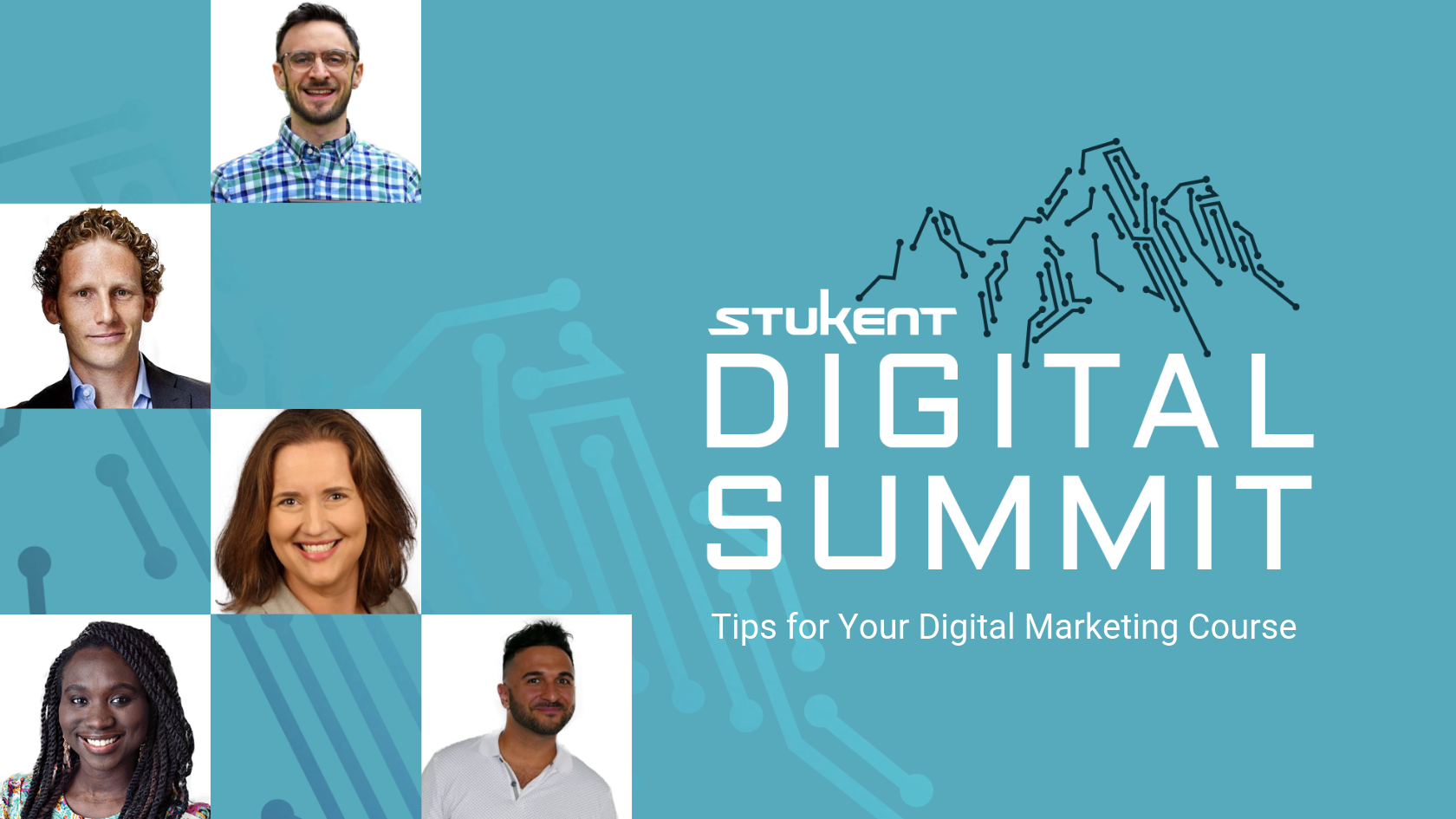Attendees of the Stukent Digital Summit (SDS) Summer 2019 were given insights into the psychology of consumer behavior, making audible connections with students, and becoming educational influencers during the Aug. 16 virtual conference.

Stuart Draper, founder and CEO of Stukent, presented first, speaking of the company’s recent placement of 764th on the annual Inc. 5000 list, which identifies the fastest 5000 growing private companies in America.
Another key point from the opening presentation was an official announcement of ProfCon 2020, Stukent’s second in-person conference, which is slated for June 15-17, 2020, in Las Vegas.
Stu was followed by five more conference presenters; here are overviews of their sessions.

Contagious: Why Things Catch On
Jonah Berger: marketing professor, Wharton School at the University of Pennsylvania; author
Jonah Berger, marketing professor and author of the marketing book “Contagious,” spoke of influencing consumer behavior, from understanding why people talk to one another, what people talk about, and the power of friends providing objectivity when it comes to discussions about product purchase.
Attention was given to the importance of word of mouth and how to leverage it as a marketing tool. “People are more likely to trust their peers than they are to trust an organization,” he said. “Because our friends will be objective, because they will tell it to us straight, we are more likely to trust what they have to say.”
Jonah said that “only about 10 to 15 percent of all word of mouth is online,” but that so much attention has been given to technology as a channel for word of mouth that a bigger picture has been missed, that is the psychology of word of mouth.
“Why are people talking, and why are they sharing?” he posed. “It’s not about the number of connections; it’s not about the technology; it’s about the psychology.”

Are Students Hearing What You’re Saying?
Leo Morejon: VP, strategy and enablement at Build & Inspire; adjunct instructor, Iowa State University and West Virginia University
“Students aren’t hearing you,” Leo Morejon told SDS attendees. While students may be paying attention, they are not really using their ears, he said, and spoke of providing a better educational experience than what is being offered in what he identifies as a text-saturated educational environment.
That better educational experience, Leo said, is provided by using audio feedback to provide memorable feedback to students. For Leo, podcasting equipment for instructing online courses provided an avenue to connect with students. “They needed to hear me,” he said.
He pointed to students growing up with voice-related technology as one reason that audio makes sense for educational communication. He also spoke of the efficiency of providing students with audible feedback.
Leo also gave suggestions on equipment that educators may want to use for providing instruction.
Leo also encouraged educators to “strive for the best” audio equipment for instructional use. “You could get started and you could do some amazing work really, really, really inexpensively,” he said. He indicated that in addition to his mic he uses the free program Simple Recorder, a $12 mic arm, and a $12 mic cover.

A Practitioner’s Perspective: Top 10 Digital Skills Your Grads Must Have
Mary Owusu: VP, analytics and digital strategy at Mower; adjunct Canisius College
Mary Owusu pulled from her industry and instructional experience in talking of the skills marketing graduates should have to successfully join the workforce.
“Here’s the problem that I find with students that walk through my door when they come to apply for digital-oriented type positions: they don’t have enough experience, they don’t have the right experience, or they cannot articulate what they learned,” she said. “Essentially, they are not career ready.”
Mary said that educators “need to empower and enable our students,” and gave attention to the following points, recommending that students
- Have taken a digital principles course
- Have taken at least one specialized digital marketing course
- Can demonstrate they know how to optimize and analyze performance
- Demonstrate that they have experience with cases
- Demonstrate that they have experience with simulations
- Demonstrate that they have experience with real-world digital marketing tools
- Have a resume that specifies the digital tools and skills they learned
- Be able to point to specific projects they executed
- Have the certifications to back it up
- Be critical thinkers and good communicators

How to Teach Students to Use Facebook Audience Insights to Build an Audience Persona
Matt Kushin: associate professor, Shepherd University
Matt Kushin spoke of students learning how to create an audience persona using Facebook Audience Insights, which, according to Matt, “gives you actual demographic information about Facebook users.” He said Facebook Audience Insights “also gives us information on interests and hobbies, and … potentially lifestyle information.”
The audience was shown an assignment involving a baking subscription scenario that Matt uses for class. The assignment is to help students learn how to use Facebook Audience Insights.
He also shared an assignment for students to use data to create a backstory and answer questions relative to an audience persona. “I always have my students put evidence that they’ve found that shows what they’ve done,” he said. “… because I want students to draw the connection directly from the data to what they’re coming up with.”
Matt also spoke of educational experiences that can extend from the creation of audience personas, including students writing stories of personas and sharing with classmates about the personas.

Embracing Our Inner Influencer: How Can Educators Use Social Media for Personal Branding?
Karen Freberg: associate professor, University of Louisville
“I think that anyone can be influential in their sphere, and even educators,” said Karen Freberg during the summit’s closing session. “And I think this is a space where it’s really untapped. … As every year goes by, there [are] more opportunities for us as educators to be able to make a difference and impact, not only in the classroom with our students but in the industry.”
Karen shared her definition of an educator influencer as “an individual in the education space who utilizes their knowledge, personality, and expertise on and offline to build communities, partnerships, and initiate actions amongst their audience base.”
During her presentation, she gave five points for how instructors become educator influencers:
- Know What Makes You “You”
- Being a Resource = Power in the Industry
- Foster Your Own Community
- Advocate for Your Own Brand
- Formulate Strategic Partnerships
Karen also pointed to individual educators who have exhibited influence and to companies that have connected to education.
Virtual Conferences
This digital summit was the fourth such virtual conference presented by Stukent. Click here to request access to the session recordings from this and previous virtual conferences.






